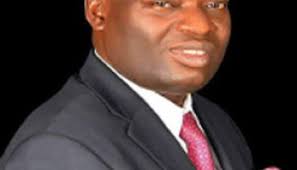Investigation Reveals Gender Barriers to Healthcare in A’Ibom, Urges Urgent Reforms

By Theresa Donatus
In an investigative report released by Lawyers Alert and MHR under the Gender Equality Fund (GEF) project has revealed the persistent gender inequalities that limit women’s access to essential healthcare services in Akwa Ibom State.
Lawyers Alert, a leading human rights NGO, focuses on promoting gender equality and access to justice for marginalized groups and MHR is a media and advocacy partner, that works to amplify the voices of women and vulnerable populations, promoting social change through strategic communication and awareness campaigns.
The duo during an online press conference yesterday, outlined critical barriers to healthcare for Tuberculosis (TB), Human Immunodeficiency Virus (HIV), and Malaria, exacerbating the already dire health conditions in the region.
From their findings, a comprehensive report underscore the numerous systemic challenges women face in accessing medical care in Akwa Ibom State, one of the highest HIV-prevalent regions in Nigeria. Also stated that Women in the state are disproportionately affected by TB, HIV, and Malaria, with many unable to seek timely healthcare due to cultural, economic, and societal barriers.
READ ALSO: Task Force recovers 222 rustled cattle in Taraba
From the analysis conducted by Lawyers Alert and MHR, Akwa Ibom State accounts for 12% of Nigeria’s TB cases and has an HIV prevalence rate of 5.5%. while malaria remains a major cause of morbidity, especially among pregnant women and children under five.
According to them, despite interventions, these health crises persist, largely due to stigma, gender inequality, and inadequate healthcare infrastructure.
Key findings also revealed that Economic dependency, caregiving responsibilities, and cultural stigma prevent many women from seeking healthcare in a timely manner.
According to the group statement “Akwa Ibom state faces frequent stockouts of TB medications, inadequate diagnostic tools, and poor healthcare facilities, especially in rural areas.
“And traditional remedies and religious beliefs often undermine the effectiveness of modern healthcare, which they concluded that lack of gender-sensitive healthcare policies has resulted in fragmented services that fail to address the unique needs of women.”
The report calls for immediate action to address these systemic challenges, the following recommendations; A comprehensive approach integrating TB, HIV, and Malaria services to optimize resource use and provide holistic care to patients, and empowering women through economic support programs that reduce dependency and increase healthcare access.
The group also recommended Strengthening advocacy efforts by women-led organizations and community health champions to challenge harmful cultural practices, and enforcing existing health policies with a focus on reducing gender disparities and stigma in healthcare.
They added that Partnering with the private sector to improve the availability of essential healthcare resources.
Lawyers Alert and MHR urge the Akwa Ibom State Government, healthcare providers, and local stakeholders to adopt gender-transformative healthcare approaches. Tackling the barriers of cultural norms, financial dependence, and inadequate healthcare infrastructure is key to ensuring all women can access the healthcare they need.
The GEF-supported project, “Law, Rights, and Community Empowerment for Social Change in TB, HIV, and Malaria Response,” aims to address the gender-related barriers preventing women and vulnerable groups from accessing healthcare in Akwa Ibom and Benue States. By focusing on policy advocacy, community-driven interventions, and support for women leaders, the initiative seeks to create lasting, gender-sensitive changes in healthcare access.








